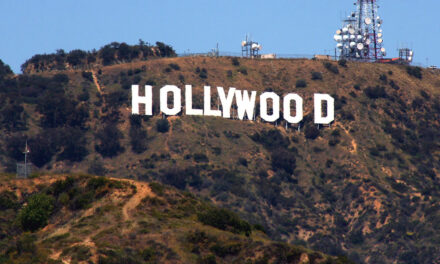The subject of race has always been an important one for President Obama, he first gained minor notoriety in academic circles for being the first African American President of the Harvard Law Review, and wrote a best selling and critically acclaimed book, (Dreams From My Father,) about the subject of race in America. He also came under fire for his relationship with his former pastor, Black Liberation Theology devotee Reverend Jeremiah Wright.
The subject of race has once again been thrust into the public forum as the criticism of President Obama has become more extreme at Tea Party rallies, and after South Carolina representative Joe Wilson’s unprecedented outburst during one of his most recent presidential addresses to a joint session of Congress. The most notable critic of the protests has been former President Jimmy Carter, who said of the protests “I think an overwhelming portion of the intensely demonstrated animosity toward President Barack Obama is based on the fact that he is a black man, that he is African-American.”
The criticism was not well received by the overwhelming majority of conservative voices in the country. Michael Steele, the first African American to serve as chair of the Republican National Committee said “President Carter is flat-out wrong, this is not about race. It is about policy.”
People on President Carter’s side of the argument tend to point out the more unusual elements of the criticism of President Obama to support their opinions. Such as the persistent “birther” movement that holds that the President was not actually born in the United States. The movement originated during Obama’s run for the presidency and has persisted to this day in spite of him having already produced his Hawaiian birth certificate and the local newspaper announcement of his birth that his parents released.
Those who claim that the criticism is racially motivated also point to the more extreme elements of some of the criticism, such as the various caricatures of President Obama as a Hitler, or a witch doctor, or signs like one that was spotted at a gathering in Washington DC that read: “The zoo has an African lion and the White House has a lyin’ African.”
The argument has its merits, and in some cases it is clear that race is a key factor for some people’s dislike of President Obama, but it is not always that simple. “Granted, some people (on both sides of the isle) do not like President Obama because he is black. Those are misguided feelings fostered from ignorance and lack of decent civility; however, it is simply ridiculous to group all protestors in the South into this category. When you have close to 2,000,000 protestors at an event there are bound to be some bad apples with ignorant signs and frankly stupid rants,” notes Ches McDowell, President of the NCSU chapter of the College Republicans. As New York Times columnist David Brooks pointed out in a recent column, he noticed that when some of the tea party protests were going on near (the Black Family Reunion Celebration) to celebrate African American culture, some of the tea party protesters could be found enjoying the festivities themselves, so it would be unfair to suggest that the grievances expressed at the Tea Parties all come from racial dislike.
Extreme presidential dislike is nothing new. Anyone who has not been living in a cave knows that feelings on President Bush certainly ran in extremes. It was not unusual to find protestors of Bush’s policies portraying him as Hitler and accusing him of being a fascist. As Mr. Brooks notes in his opinion column, the arguments that are being so virulently expressed at the tea party protests are as old as the country itself and the arguments over the role of government in democracy that Thomas Jefferson and Alexander Hamilton had. While it would not seem that the arguments being expressed are as eloquent and intelligent as the ones Hamilton and Jefferson often expressed, it does mean that the dislike of what people believe are parts of the Obama political agenda can come from a source other than racism.
Politics is a game for only those with the thickest skin, and a democracy cannot thrive unless people are allowed to passionately criticize their leaders. However, that does not mean that all criticism is equally well reasoned or worthy of consideration. It would be better if we could all argue a little more politely and honestly, so we could critically think about what we are arguing, rather than why we are arguing.




